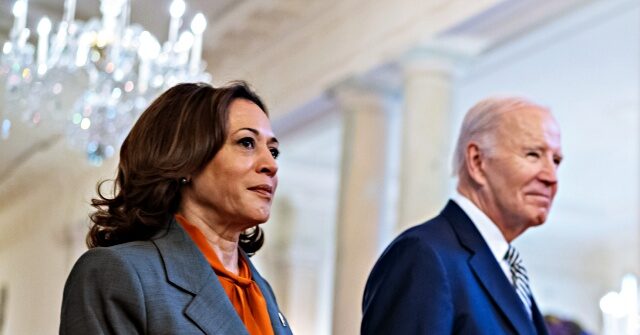Since President Joe Biden and Vice President Kamala Harris assumed office in January 2021, many Americans have been grappling with rising costs associated with essential goods and services. According to data from the Federal Reserve Bank of St. Louis, crucial expenditures, such as food, rent, and electricity, have significantly increased under the current administration. Specifically, grocery prices have surged by 22.6%, rent has gone up by 23.2%, and electricity expenses have escalated by 28.3%. These statistics underscore the financial strain that everyday Americans have been facing as they navigate their economic realities in the wake of ongoing inflation.
In the political arena, the impacts of these rising costs are amplified as Vice President Harris campaigns alongside radical leftist Governor Tim Walz of Minnesota against former President Donald Trump and his running mate, Senator JD Vance, in the looming 2024 election. This backdrop of economic distress has been a focal point in the political discourse. Biden has suggested that Harris will advocate for “Bidenomics” and maintain the policies that many attribute to the rising inflation. Conversely, critics argue that these policies have exacerbated the financial challenges many Americans face, positioning the incumbent administration on the defensive as they gear up for the electoral battle ahead.
The rhetoric surrounding inflation has also shifted, especially during public addresses by President Biden. In an April White House press conference, while discussing inflation, Biden claimed that it had skyrocketed when he took office. However, subsequent fact-checks, including those from Breitbart News, indicated that inflation rates were not at alarming levels at the beginning of 2021. At that time, the consumer price index was only up by 1.4% year-over-year, with incremental increases observed in the following months. This discrepancy has led to intensified discussions regarding the Administration’s economic narrative and accountability.
Former President Trump has seized upon the economic hardships facing many citizens today as a campaign tool, launching attacks on the current administration’s handling of inflation. Through social media, Trump has directly compared food prices from his presidency to those under Biden and Harris. He highlighted increases in the costs of items such as coffee, salmon, and milk, making a pointed remark that emphasized the rising costs under the Biden administration—referring to the financial strains as “The Cost of Kamala.” This kind of rhetoric not only serves to rally his base but also attempts to create a narrative that pins the blame for inflation directly on the current leadership.
As the political landscape heats up leading into the 2024 election, the issues surrounding inflation and the cost of living are likely to remain central to discussions both in campaigns and among voters. Economic data that reflects the consumers’ struggles will play a pivotal role in shaping public perception of the current administration’s efficacy and its responses to the realities faced by struggling families. This tug-of-war of narratives between the Biden-Harris administration and their opponents will undoubtedly shape the electoral battle and influence voter sentiment in the run-up to the election.
Ultimately, the tackling of inflation and rising costs of living represents not only an economic challenge but also a critical political issue that will test the resolve of the current administration. As they face scrutiny from political adversaries and the electorate, the effectiveness of their policies may determine not only the outcome of upcoming elections but also the long-term trust of the American public in their leadership. How the Biden-Harris administration navigates these challenges will likely define its legacy and impact on the American economy in the years to come.

